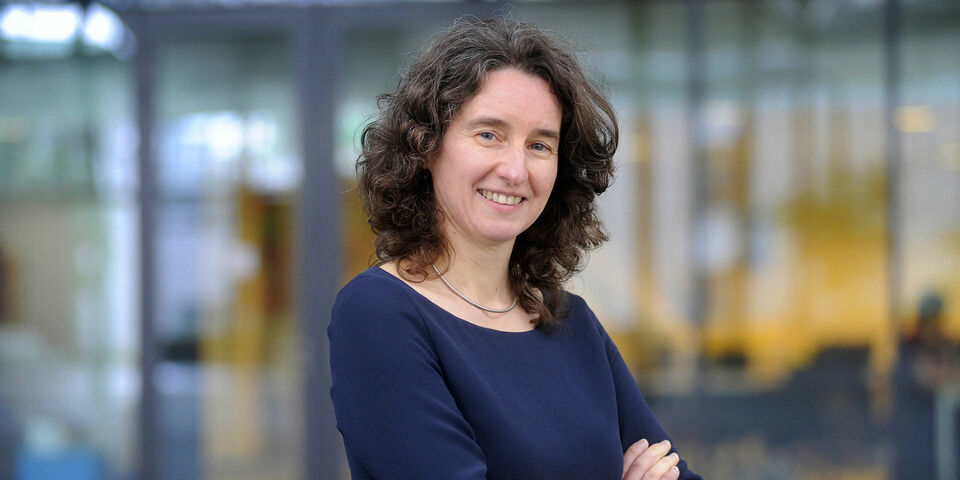Large education grant for Isabelle Reymen
Professor Isabelle Reymen, the scientific director of TU/e innovation Space, has secured a grant worth half a million euros under the Comenius program run by NWO. In the coming years Reymen will develop the conceptual framework for Challenge Based Learning and will research its subsequent rollout and upscaling at TU/e.
Submitting the application she felt very hopeful, but after the interview round with the assessment committee doubt set in. “I was given very little time to explain my application in greater detail. So once I left the interview room, I wondered whether I'd said enough,” says Reymen.
Yesterday a mail brought good news. Her application ‘Fostering Challenge-Based Learning through TU/e innovation Space’ has been accepted in the highest category of the Comenius program. This fund for educational innovation works with three tiers: Teaching Fellow, Senior Fellow and Leadership Fellow. Over the years, various TU/e staff members have received grants in the first two categories, but Reymen's application is the first in the Leadership Fellow program.
Framework
In this round of grants a total sum of two million euros was available for the top-tier program. Four applications, one of which was Reymen's, were each awarded a budget of half a million euros. The innovative nature of her project application and the planned scale drew a positive response from the assessment committee. It is believed that her project could have a highly innovative impact on the curriculum. Among the questions put to Reymen by the committee in the round of interviews was this: What is the difference between Challenge Based Learning (CBL) and Problem Based Learning (PBL)? According to Reymen, the assignments involved in CBL are broader and more complex than those in PBL.
However, says Reymen, the first step is to build the conceptual framework of CBL. “In various places around the world CBL has already been adopted, but it has not yet been the subject of any proper research. That's what we will be doing in the coming years, and already we are seeing plenty of interest, from places such as Aalto University in Finland and MIT in the US, where people are also working with CBL,” says Reymen.
Experiments
At the Department of Electrical Engineering and elsewhere, experiments with CBL will get underway as early as the coming academic year, says Reymen. “Of course, if in future we want to introduce CBL as our new educational concept, as it says in TU/e's Education Vision 2030, we have to get our lecturers on board at once. We are going to have to clearly demonstrate to them, in the coming years, the benefits of CBL. We will also have to start assessing our students differently once they are working increasingly in interdisciplinary teams. Assessing them on the basis of a single discipline will no longer be an option. That too will require our lecturers to make changes.”
The committee that approved her application assessed Reymen's ambitions as 'realistic' and spoke of its confidence ‘that the applicant can realize the planned results’. However, it could also imagine that the students' workload would increase if they were required to follow CBL in several courses at the same time.
As the recipient of a grant, Reymen will be accepted into the Comenius network. “That's also very positive,” says Reymen, “because it means that I can share and promote my plans at a national level.”


Discussion